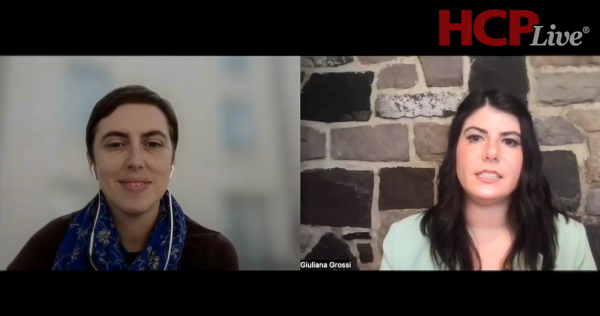DISCLAIMER
The information and materials accessed through or made available for use on any of our Sites, including, any information about diseases, conditions, treatments, or medicines, are for informational purposes only. The Content is not intended to be and is not a substitute for professional medical advice, diagnosis, or treatment, and your participation on our Sites does not create a healthcare professional-patient relationship. You should consult a doctor or other qualified health care professional regarding any questions you have about your health or before making any decisions related to your health or wellness. Call your doctor or 911 immediately if you think you may have a medical emergency.compose your message
message sent
email sent successfully
Trusted Resources: News & Events
Latest announcements and gatherings
Corinna Schultz, MD, Shares How Pediatricians Can Discuss Sickle Cell Trait With Patients, Families
According to new research, pediatricians recognize the importance of discussing the presence of sickle cell trait (SCT) in newborn screening, however, their confidence in how to discuss it is lacking. Lead investigator Corinna Schultz, MD, Department of Pediatrics, Sidney Kimmel Medical College of Thomas Jefferson University, Center for Cancer and Blood Disorders, Nemours Children’s Health explained that the conversation needs to continue beyond the initial screening results.
“They’re often discussing just that the child has sickle cell trait, and not necessarily talking about inheritance patterns, or potential medical complications, or reproductive decision making in the future,” she said in an interview with HCPLive.
The study which Schultz presented at the American Society of Hematology (ASH) Annual Meeting and Exposition, surveyed a large population of pediatricians and primary care physicians (PCPs) to evaluate the understanding of SCT in this setting.

 +myBinder
+myBinderRelated Content
-
news & eventsUniversity of Illinois at Chicago awarded $4.6 million NIH grant for chronic pain researchThe University of Illinois at Chicago ha...
-
people & placesKathryn Hassell, MDDr. Hassell provides inpatient and outpa...
-
Community CenterWhat it’s like to be 17 and living with sickle cell diseaseTre Adegoroye is 17 and was diagnosed wi...
-
news & eventsSCANJ: 11th Annual Statewide Sickle Cell Disease SymposiumWe enthusiastically invite you to The S...
-
news & eventsMARAC Advisory Statement: COVID-19 UpdateAugust 26, 2021 — The Sickle Cell Dise...
-
people & placesCarolyn C. Hoppe, MDDr. Hoppe is a senior clinician and scie...
-
education & researchFever management practices among sickle cell disease programs in low and middle-income countriesUnder-5 mortality for children with sick...
send a message
To improve your experience on this site, we use cookies. This includes cookies essential for the basic functioning of our website, cookies for analytics purposes, and cookies enabling us to personalize site content. By clicking on 'Accept' or any content on this site, you agree that cookies can be placed. You may adjust your browser's cookie settings to suit your preferences. More Information
The cookie settings on this website are set to "allow cookies" to give you the best browsing experience possible. If you continue to use this website without changing your cookie settings or you click "Accept" below then you are consenting to this.
Support for this site is provided by

This platform is made possible through a partnership with the Sickle Cell Disease Association of America, Inc. (SCDAA) and its member organizations. SCDAA's mission is to advocate for people affected by sickle cell conditions and empower community-based organizations to maximize quality of life and raise public consciousness while advancing the search for a universal cure.




